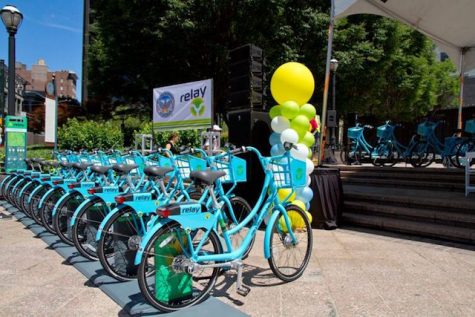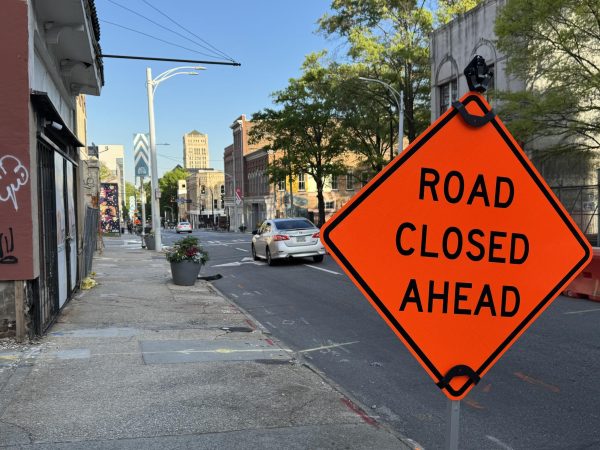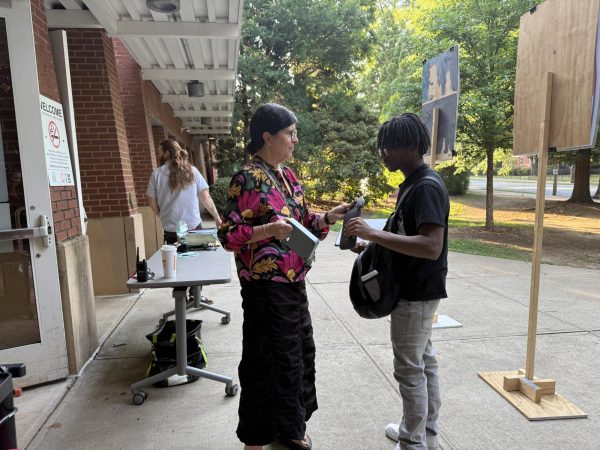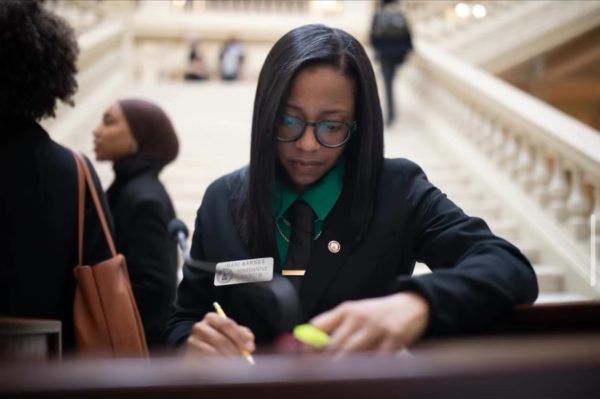Atlanta embraces sustainability efforts with growth
By Chandler Morris
As Atlanta’s economy continues to boom, it attracts more attention and residents into the city. According to the Atlanta Regional Commission, Atlanta welcomed over 78,000 new residents and added jobs at a rate of 3.3 percent between 2016 and 2017.
However, along with economic development and a population increase comes the need for sustainable development.
In 2017, Atlanta was named a Rockefeller resilient city and created the Office of Resilience through a partnership of 100 cities. Atlanta’s Office of Resilience is working to improve the city’s sustainability in four dimensions: health and wellbeing, economy and society, infrastructure and environment and leadership and strategy, and has secured $28 million in federal and state grants to fulfill sustainability initiatives.
Rockefeller Resilient Cities defines sustainability as the capacity of individuals, communities, institutions, businesses and systems within a city to survive, adapt and grow no matter what kinds of chronic stresses and acute shocks they experience.
Atlanta has implemented policies identified as sustainable by the Office of Resilience of the mayor’s office in hopes of reducing the negative impact that comes along with rising population and infrastructure.
According to Michael Bryan, an ambassador of the Atlanta Student Sustainability Council, sustainability initiatives underway.. The city committed to becoming a 100 percent clean energy and renewable city by 2035, announced a new plan to implement more solar panel use for Atlanta residents and became a Bee City, which is a national organization that aims to set resolutions in cities to protect pollinators, affiliate in December.
“Sustainability is more than just focusing on environmental factors, rather it is a consolidation of the triple bottom line: social, economic and environmental factors,” Bryan said. “By implementing sustainable policies, cities are not only benefiting themselves, but their economies and citizens as well.”
The initiatives have addressed a major need in Atlanta, one of the hottest cities in the United States. According to Kevin Lanza, who researches and teaches a class on sustainability at Georgia Tech, this heat is caused by the urban heat island effect.
This phenomenon is based on the removal of trees, dark building materials like asphalt and concrete and waste heat emission produced by cars that cause urban areas to become warmer than areas outside city lines. The heat is detrimental to public health and city ecosystems.
These issues can be addressed by planting trees, the use of cool building materials, materials that are highly reflective and promoting the use of alternate modes of transportation.
“I think because of how sprawling Atlanta is and how car dependent we are,” Lanza said. “Atlanta ranks pretty low in terms of sustainability compared to other cities. Urban sprawl is a huge issue with Atlanta, so that’s where cities are spreading uncontrollably outward and reducing density.”
While Atlanta does have room to increase sustainability, the city already has sustainable measures in place. According to Lanza, Atlanta has 47.9 percent tree canopy coverage, which is protected by the Atlanta Tree Protection Ordinance. Atlanta tries to move away from cars by encouraging biking through the Relay bike system, a rentable bike program.
“Universities such as Georgia Tech and Emory are considered models of sustainability for cities to follow,” Lanza said. “[The colleges] are also nurturing these young bright people that are now having the skill sets around sustainability, so they are able to improve upon sustainability because these are big pieces in our city.”
Grady has also had its own ways of contributing to education in sustainability, offering courses such as AP Environmental Science and Oceanography and sponsoring clubs such as Grady Earth Club and 500 Women Scientists. These options promote education in environmental science.
“I’m taking AP Environmental Science right now, and it’s definitely made me look at my daily life differently,” senior Liliana Chanler said. “I’ve started taking reusable water bottles and Tupperware to school instead of plastic just because I feel I have accountability now,” “I think Grady has a lot of people that care about the environment.”
According to Lanza, increasing sustainability will not only have a beneficial effect on Atlanta’s infrastructure, but also the environment surrounding the city.
“The overarching goal is you want to convert what is artificial or human-made into a more natural kind of system because natural systems are inherently better for the environment,” Lanza said. “So, that’s closing the loop, instead of having or producing waste and putting it in water sources or landfills we need to find a way of taking that waste and putting it back into the system and reuse it, recycle it or reduce it.”


Chandler is Managing Editor of the Southerner Online as well as Asst. Managing News Editor of the Southerner. She specializes in news, features, and...









